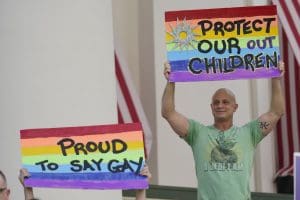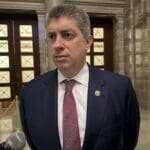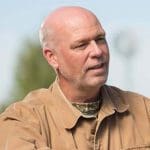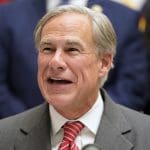As GOP-led states pass laws targeting LGBTQ people, local groups are stepping up to help
TransSOCIAL in Florida and the HiDad Project in Arizona are two of the groups providing assistance to LGBTQ people.

As LGBTQ people face an onslaught of discriminatory laws enacted in their states, organizations are stepping in to provide emotional support, assist trans people with name and gender marker changes, and help folks find gender-affirming health care.
Laws targeting LGBTQ people that have been passed and enacted by Republican lawmakers and governors this year include bans on transgender athletes in schools playing on the team of their gender in Arizona, Oklahoma, Iowa, South Dakota, and Utah, and restrictions on classroom discussions of sexual orientation and gender identity in Florida and Alabama. In April, Alabama Gov. Kay Ivey signed a ban on gender-affirming medical care for young people, such as hormone treatments and puberty blockers.
There are currently 15 states with transgender sports bans, some of which have been halted from going into effect by the courts. Three states have enacted some kind of ban against gender-affirming medical care; six states have passed laws censoring LGBTQ topics in the classroom; and five states require parental notification prior to discussions of LGBTQ people in schools.
Regardless of whether such bills pass, their introduction and the debate over them affect the mental health of LGBTQ kids. According to a poll conducted between Sept. 14 and Nov. 5 by the Trevor Project, an organization dedicated to improving the mental health of LGBTQ youth, 23% said that debates about anti-LGBTQ state laws resulted in very negative effects on their mental health, and 43% said their mental health was influenced somewhat negatively by such debates. Fifty-seven percent of transgender and nonbinary youth said transgender sports bans made them sad, and 26% said they felt hopeless.
One organization that is providing support as these political attacks intensify is TransSOCIAL, an organization in Florida led by trans people. It provides assistance to trans people in changing their names and gender markers, including covering the fees involved and helping find lawyers who will represent them pro bono, giving trans people health care referrals, and providing cultural sensitivity training to health care providers and schools.
Ashley Mayfaire, co-founder and director of operations for TransSOCIAL, said organizers started the group in 2016. Mayfaire said that when her husband began transitioning, they realized how few services and social groups there were for the trans community in South Florida. The organization’s trans-focused cultural sensitivity training for health care providers and employers helps fund the organization. TransSOCIAL also provides free workshops for high schools, colleges, and universities.
Mayfaire said that the number of people they have helped with name changes more than doubled from 2020 to 2021 and that the number is “on track” to double again soon. The political environment for trans people across the nation in the past few years has resulted in more individuals and families reaching out to the group: In Florida, Republican Gov. Ron DeSantis signed the state’s first anti-LGBTQ law in over 20 years, a trans sports ban, into law in 2021 and a bill restricting classroom discussion of sexual orientation and gender identity in 2022.
“A lot of people reach out with fear and desperation, especially families with trans youth,” Mayfaire told the American Independent Foundation. “There’s just been a huge uptick in clients, and people have a lot of questions about how it’s going to affect them directly.”
Mayfaire said there’s also been a “huge demand” for mental health services. For this reason, TransSOCIAL is trying to find funding to bring in a full-time mental health provider.
The organization is also preparing for a situation where trans people can no longer get access to the gender-affirming health care they need. “We see it coming and we’d rather be prepared with our own internal support networks than wait for the government to just take away our rights,” they said.
On April 20, the Florida Department of Health shared what it called “guidance” on gender-affirming health care for trans youth. It said doctors should not prescribe hormone therapy and puberty blockers to minors. Raven Hodges, a research analyst at the Southern Poverty Law Center, told the American Independent Foundation in April that he is concerned these efforts may extend to adults soon. Weeks later, Missouri Republican state Rep. Nick Schroer said that lawmakers should consider whether bans on gender-affirming care should extend to people in their 20s.
“We have that affirming network of providers that we are keeping in contact with and talking to about the new bills as they pop up, to see what their take is on it and how comfortable they are,” Mayfaire said. “We’ve been looking at virtual providers to see if there’s leniency with virtual medicine for people to be able to still prescribe.“
The HiDad Project, an organization based in Scottsdale, Arizona, where Republican Gov. Doug Ducey signed two anti-trans bills into law in March, provides emotional support to LGBTQ youth. The organization, which says its mission is to “be open to all individuals interested in a place for support, acceptance, love, and to have the freedom to be who they are, without fear of reprisal or ridicule, as well as those who need advice when other resources are not available,” was started by Mark Egidi, a cisgender straight man. In June 2021, Egidi sent out a TikTok video wishing LGBTQ people a happy Pride Month and defending LGBTQ people from hate, and the response was “massive,” he said. In a video shared on the HiDad Project website, one TikTok user said in response, “Can you be my dad? My family disowned me when I came out as gay.”
Egidi said in a response video that seeing such messages angers him as someone who is trying to start a family with his wife. “If you’re one of these kids who got disowned because you’re gay or trans, I’m your fucking dad now,” he said.
LGBTQ young people can reach out to volunteers through Discord, a text, video, and voice app. The HiDad Project’s 16 volunteers speak to LGBTQ youth across the nation and around the globe.
Egidi said in an email, “We have a population of roughly 1,200 people that we interact with on at least a somewhat regular basis. That may mean they simply read a post and react to it without actually sending a message or that is a full blown conversation.”
Asked how the spread of anti-LGBTQ laws in the U.S. has affected the service, Egidi told the American Independent Foundation in a phone interview, “It’s exactly what you would predict. And it’s not even kids that live in these states that are passing these laws. It’s kids that live in different countries that are like, Listen, if it can happen in the U.S., it can happen here. A lot of people are saying, I feel like it’s not legal for me to exist. I feel like I would be better off dead. The state is trying to kill me. I should just do it myself.”
The organization’s volunteers have mental health first aid training, he said, and some volunteers are in graduate degree programs to become mental health care providers, but Egidi emphasizes that if anyone is acutely in crisis, volunteers will refer them to a crisis line and direct them to other resources.
“The best way to describe our operations in that respect is to compare us to the old TV show M.A.S.H., wherein we do the rough and dirty work of keeping the members alive NOW until they can finally reach the services that they need,” Egidi said.
Published with permission of The American Independent Foundation.
Recommended

Ohio Gov. DeWine said he didn’t know of millions in FirstEnergy support. Is it plausible?
Ohio Gov. Mike DeWine’s claim to not know about the millions an Akron utility spent supporting his 2018 campaign for governor simply isn’t credible, an Ohio political scientist said in a recent interview. A spokesperson for DeWine pushed back. FirstEnergy provided that support, then spent more than $60 million to pass and protect a $1.3 billion ratepayer-financed […]
By Marty Schladen, Ohio Capital Journal - April 29, 2024
Missouri governor hopeful Bill Eigel rejects affordable childcare proposal
Eigel has previously supported stripping funds from public schools and once opposed an expansion of early kindergarten.
By Jesse Valentine - April 15, 2024
Montana Gov. Greg Gianforte hosts event with religious extremist
J.P. De Gance is the founder of Communio, an organization that uses social media marketing tools to push a far-right agenda.
By Jesse Valentine - March 27, 2024







































































